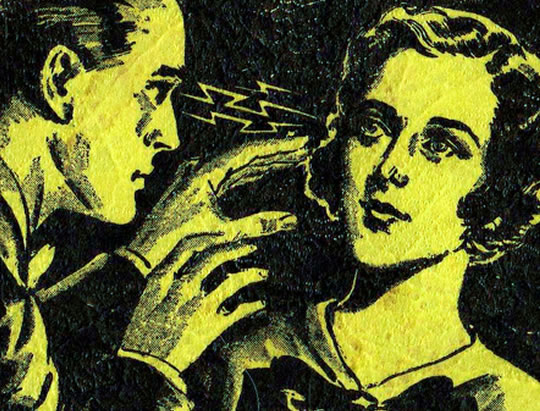Hypnosis: 8 Myths Most People Believe

Are those under hypnosis mentally weak, helpless, unable to lie or maybe asleep?
It is true that hypnosis can achieve all sorts of fascinating effects. Amongst other things, people can:
- have visual or auditory hallucinations,
- move their bodies without intending to,
- and feel less pain.
But much of what many people believe about hypnosis is total and utter rubbish. Here are 8 very common myths:
Myth 1: Only the mentally weak can be hypnotised
This isn’t true. In fact the exact reverse is probably more true. The higher your intelligence and the stronger your self-control, the more easily you are hypnotised.
That’s because entering a hypnotic trance is all about concentrating, so people with mental health problems can find it difficult.
However finding it hard to enter a hypnotic state doesn’t mean there’s anything wrong with you. People naturally vary in how susceptible they are to hypnosis. Studies have shown that around 30% of people are relatively resistant to being hypnotised. Although, with effort, the state can usually be achieved eventually.
Myth 2: The hypnotised are helpless
Also false. It’s difficult to get people to do things under hypnosis that they wouldn’t normally do. While hypnotised people are still in touch with their morals and normal standards of behaviour.
That said, though, it is possible to reduce people’s inhibitions under hypnosis and they will more readily accept suggestions.
Stage hypnotists rely on this heightened suggestibility, along with picking the types who, let’s say, don’t mind a little attention. That’s how they get people to quack like ducks and the rest.
Don’t we all know someone who would quack like a duck if it meant everyone would look at them?
Myth 3: Hypnosis is sleep
Yes, people look like they’re asleep when they’re hypnotised because their eyes are closed and they’re peaceful. But they’re not asleep. The brain waves of a person who is hypnotised are nothing like those of a person who is asleep.
In fact the hypnotic trance is a heightened state of concentration. A high level of alpha waves on an EEG show that a hypnotised person is awake, alert and very responsive.
Myth 4: A hypnotist cured me in one session!
Some of the most outrageous claims are made about hypnotism (although usually not by hypnotherapists themselves). These have their origins in stage hypnotism as well as hucksters of all types.
Of course people regularly repeat claims that they were cured in only one session of hypnotherapy because it’s such a good story. Who wants to hear about how it took you a decade, three divorces and 19,423 nicotine patches to give up smoking?
The truth is that almost no one is cured in one session, if they are cured at all through hypnosis. Hypnotherapists usually insist that patients commit to 6 sessions, or sometimes 20 sessions. This isn’t naked profiteering, change takes time.
Even then, hypnotherapy is often used as an added extra to some other kind of treatment, rather than as the main method.
Myth 5: Hypnotists must be flamboyant or weird
That’s just TV people who have to be flamboyant and weird.
In reality it would be distracting if the person trying to hypnotise you had swirling eyes, kept talking about black magic and wore very loud ties.
Your average hypnotist is much more likely to wear a grey suit.
Myth 6: Hypnosis can be used to retrieve long forgotten memories
If you believe this one then you’re in very good company. Many members of the public think this is true, as do some psychologists and many hypnotherapists themselves.
Except that nowadays most people in the know think that the hypnotic trance isn’t much good for accurately retrieving memories. Worse, hypnotists can easily implant false memories, because people in a hypnotic trance are easily suggestible.
That scene in the movie where a hypnotist helps the victim see the killer’s face is pure Hollywood: entertaining but total fiction.
Myth 7: You can’t lie under hypnosis
Oh yes you can! Hypnosis is not some kind of magical state in which you can only speak the truth. This is a natural result of the fact that you are not helpless when hypnotised and your usual moral (and immoral) faculties are still active.
Not only can you lie under hypnosis, but lying is not necessarily any more detectable hypnotised than when not (Sheehan & Statham, 1988).
Myth 8: You’ve never been hypnotised
Many people think they’ve never been hypnotised since they’ve never been to a hypnotherapist. In reality, most of us have experienced a state of mild hypnosis, at least.
For example, when you drive a long distance and start to feel dissociated from your body and the car, that’s a mild state of hypnosis. Your unconscious is taking care of all the mechanical aspects of driving while you conscious mind is free to float around.
Or if you’ve every meditated then you’ve hypnotised yourself. Meditation is really a specific type of hypnosis.
About the author
Psychologist, Jeremy Dean, PhD is the founder and author of PsyBlog. He holds a doctorate in psychology from University College London and two other advanced degrees in psychology.
He has been writing about scientific research on PsyBlog since 2004. He is also the author of the book “Making Habits, Breaking Habits” (Da Capo, 2003) and several ebooks.
SOURCE: PSYBLOG
Comments
Post a Comment